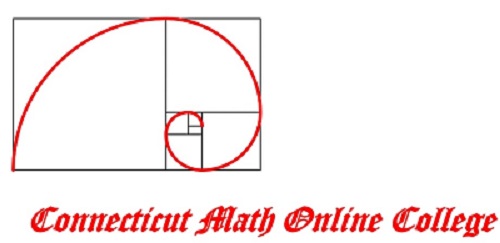POPULAR COURSES
Examples of Supported Courses
With Sample Text Books Used

A course intended primarily for students whose program of study requires calculus or business math. which reviews the fundamental operations and an extensive study of functions, exponents, radicals, linear and quadratic equations. Additional topics may include ratio, proportion, variation, progression and the binomial theorem.

A course that usually offers the foundation needed for the study of calculus. Polynomials, algebraic functions, elementary point geometry, plane analytic trigonometry and properties of exponential functions.

This is usually a first year college course for majors in mathematics, science and engineering; and the basic prerequisite for all advanced mathematics. Introduces differential and integral calculus for functions of one variable, including algebraic and transcendental functions and culminates in the fundamental theorem of calculus. Includes basic rules and properties of limits and derivatives and applications of derivatives. Also studies the plane analytic geometry needed for further calculus courses that introduce methods of integration, applications of the integral, improper integrals, infinite series, and introduction to differential equations.

Intended primarily as an introductory course for physical science and engineering majors. Covers Kinematics, Newton’s laws, conservation principles for momentum, energy and angular momentum. Thermal physics. Basic properties of waves, simple harmonic motion, superposition principle, interference phenomena, and sound. Extends in a second semester to cover Basic concepts of electricity and magnetism; Coulomb’s law, electric field and potential, Gauss’s law, Ohm’s law, Kirchoff’s rules, capacitance, magnetic field, Ampere’s law, Faraday’s law of induction, Maxwell’s equations, electromagnetic waves. Fundamentals of optics; light, laws of reflection and refraction, interference and diffraction phenomena, polarization, gratings, lenses and optical instruments.

Engineering Physics
A course that is usually offered as a one-semester course primarily for engineering students who had a one-year non-calculus physics sequence. All the major topics of a UNIVERSTY PHYSICS course are covered with an ample use of calculus.

This is usually a college course for various majors and is a non-calculus based course which includes basic probability theory, random variables and their distributions, estimation and hypothesis testing, regression and correlation. Emphasis on an applied approach to statistical theory with applications chosen (sometimes) from the biological sciences and other fields of study. Students are usually introduced to and make use of various computer packages for data analysis..
EXAMPLES OF ADDITIONAL COURSES WE SUPPORT
MATHEMATICS
- Fundamental Mathematics
- Quantitative Reasoning
- College Math
- Intermediate Algebra
- College Algebra 1
- Business Calculus
- Calculus II
- Foundations of Mathematics
- Finite Mathematics
- Discrete Mathematics for Computing
- Calculus III
- Differential Equations
- Differential Equations and Linear Algebra
- Mathematics for Elementary Ed Teachers
- Using Technology to Teach Mathematics
- Elementary Number Theory
- Linear Algebra
PHYSICS
- INTRODUCTORY PHYSICS
- UNIVERSITY PHYSICS
- ENGINEERING PHYSICS
- Mechanics Heat & Waves
- The Physics of Music & Sound
- Electromagnetism & Optics
- THERMAL PHYSICS
- Energy Physics
- Modern Physics
- Analytical Mechanics
STATISTICS
- Elementary Statistics
- Probability & Statistics
- Statistical Inference
COMPUTER SCIENCE
- Introduction to C Programming
- C++ Programming
- PHP Programming
- Java Script Programming
- Discrete Mathematics for Computing
- Java Programming
- WEB DESIGNE & DEVELOPMENT
TEST PREP
- GRE
- AccuPlacer
- MyMathTest
- Military ASVAB
- CLEP
